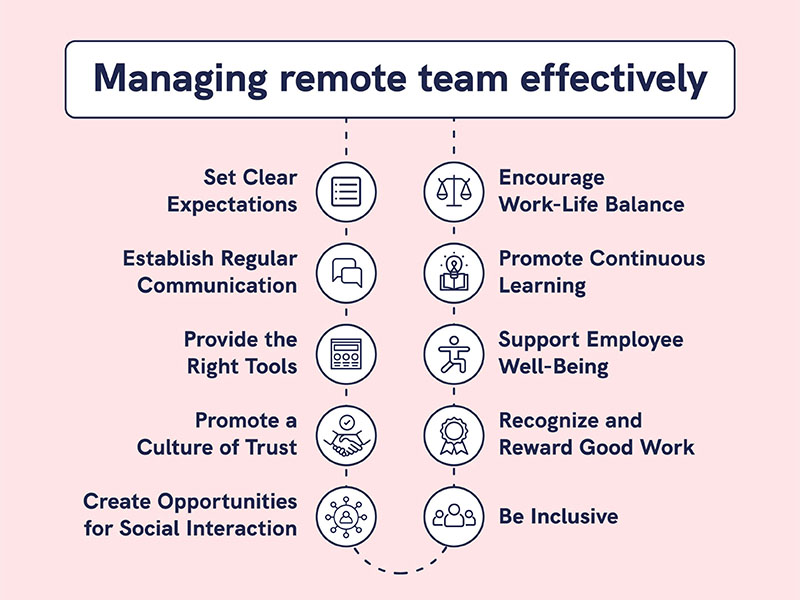
Navigating Remote Waters Essential Leadership Tips

Navigating Remote Waters: Essential Leadership Tips
Embracing the Remote Challenge
In today’s rapidly evolving work landscape, leading remote teams has become more crucial than ever. As businesses adapt to the demands of a globalized world, the ability to effectively manage teams spread across different locations has become a key determinant of success. However, navigating the complexities of remote leadership requires a unique set of skills and strategies.
Building Trust and Communication
One of the cornerstones of successful remote leadership is the establishment of trust and effective communication within the team. When team members are physically distant from each other, it’s essential to foster an environment where everyone feels connected and supported. Regular communication through video calls, emails, and instant messaging platforms can help bridge the gap and ensure that everyone remains aligned with the team’s goals and objectives.
Setting Clear Expectations
Clear communication goes hand in hand with setting clear expectations for remote team members. Leaders should define roles and responsibilities upfront, outlining specific tasks, deadlines, and deliverables. By providing clarity on what is expected from each team member, leaders can minimize confusion and ensure that everyone is working towards a common goal. Regular check-ins and progress updates can help keep everyone on track and accountable for their actions.
Cultivating a Culture of Collaboration
Despite the physical distance, remote teams can still foster a culture of collaboration and teamwork. Leaders should encourage open communication and create opportunities for team members to share ideas, provide feedback, and collaborate on projects. Virtual team-building activities, brainstorming sessions, and collaborative tools can help facilitate interaction and strengthen bonds within the team.
Emphasizing Flexibility and Adaptability
In a remote work environment, flexibility and adaptability are essential qualities for both leaders and team members. Unexpected challenges and disruptions are bound to arise, whether it’s technological issues, personal emergencies, or global events. Leaders should be prepared to adjust their strategies and support their team members through periods of uncertainty. Flexibility in work schedules, deadlines, and communication methods can help accommodate individual needs and preferences.
Promoting Work-Life Balance
Remote work offers the flexibility to work from anywhere, but it can also blur the lines between work and personal life. Leaders play a crucial role in promoting work-life balance and preventing burnout among remote team members. Encouraging regular breaks, setting boundaries around work hours, and offering support for personal well-being can help maintain morale and productivity over the long term.
Investing in Technology and Infrastructure
Effective remote leadership relies heavily on technology and infrastructure to facilitate communication, collaboration, and productivity. Investing in reliable tools and platforms for video conferencing, project management, and document sharing is essential for keeping remote teams connected and organized. Leaders should stay informed about the latest developments in remote work technology and continuously evaluate and upgrade their toolkit to meet the evolving needs of their team.
Providing Ongoing Support and Recognition
Last but not least, remote team members need ongoing support and recognition from their leaders to stay motivated and engaged. Regular feedback, praise for accomplishments, and opportunities for professional development can help remote employees feel valued and appreciated. Recognizing and celebrating individual and team achievements, whether big or small, can go a long way in boosting morale and fostering a sense of belonging within the team.
In conclusion, leading remote teams requires a unique blend of communication, collaboration, flexibility, and support. By embracing the challenges and opportunities of remote work and implementing effective leadership strategies, leaders can successfully navigate the waters of remote team management and drive their teams towards success. Read more about tips for leading remote teams


